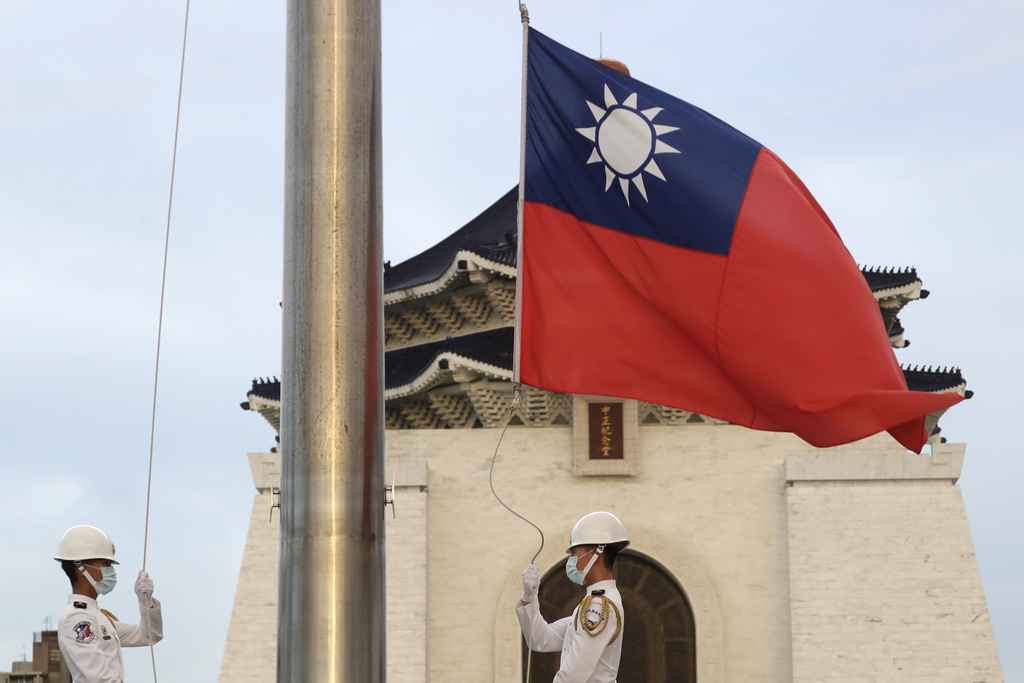
In January, Taiwan will hold a presidential election. China’s leaders hope former New Taipei City mayor Hou Yu-ih, candidate of the Kuomintang opposition party will win the job, but the smart money is on current Vice President William Lai, who represents the incumbent Democratic Progressive Party (DPP). Lai and his party favor a tougher approach to Beijing.
If Lai wins, Beijing will become much more confrontational in the coming months. A Chinese invasion of Taiwan remains highly unlikely, but an expected deterioration in China-Taiwan relations is bad news for both sides, and for any forces caught between them.
For now, Beijing is wielding both sticks and carrots to influence Taiwan’s voters. Earlier this month, China’s navy conducted its largest-ever military exercises in the western Pacific, but China has also announced a plan to develop China’s Fujian province into a “demonstration zone” for integrated economic development with Taiwan. It’s a proposal that looks an awful lot like one recently floated by Hou that would connect China’s Xiamen city (in Fujian) with Taiwan’s Kinmen islands.
This good-cop-bad-cop strategy probably won’t work. Recent polling suggests that about three-quarters of Taiwan’s 24 million people now consider themselves Taiwanese, rather than Chinese, whatever their family history—a sharp jump over the past 10 years. Some of that trend is likely the natural product of generational change, as the percentage of island residents old enough to remember life on the mainland continues to fall. But China’s crackdown on the democracy rights movement in Hong Kong in 2020 has played a role in that shift too.
Meanwhile, Taiwan’s DPP leaders are looking beyond the election toward the more threatening approach from China. Their latest pushback comes in the form of a new defense report they hope will make China think harder about a future invasion. On September 12, Taiwan’s Ministry of National Defense released its “National Defense Report 2023,” which details the lessons Taiwan has learned from Russia’s war on Ukraine. In particular, the report calls for bolstering Taiwan’s asymmetric warfare capabilities, including the acquisition of “mobile, cost-effective, portable, and AI-enabled” weapons and equipment. In particular, the report cites Ukraine’s successful use of drone aircraft against Russian forces as evidence Taiwan should produce 7,700 military drones by 2028.
China has also learned lessons from the war in Ukraine. Its leaders recognize that an enemy fighting for its land can make territorial gain prohibitively expensive for the invader, and that Western powers are more likely to align than to divide in the face of naked military aggression. It should also be clear for now that Beijing badly needs to focus its current attention and resources on domestic challenges—a slumping economy, in particular.
Over the longer-term, China’s President Xi Jinping remains determined to reincorporate Taiwan into China by any means necessary, and he’ll respond forcefully to any moves he considers foreign interference in this mission. But Beijing also understands that Washington has domestic challenges too and will not welcome any pro-independence push by anyone in Taiwan for the foreseeable future. That gives Beijing time to wait for better conditions for decisive action against the island’s autonomy.
But there is still a rising risk of military accident that could provoke a sharp escalation in tensions. If China’s military responds to a Lai victory in January by challenging Taiwanese defenses much closer to the island’s shores, if it demands the right to inspect all Taiwan-bound shipping, or if its aircraft become more aggressive about challenging U.S. planes over the Taiwan Strait, Beijing and Washington could find themselves managing a crisis neither side really wants but can’t avoid.
These are the Taiwan risks most likely to develop sooner rather than later.
More Must-Reads from TIME
- Cybersecurity Experts Are Sounding the Alarm on DOGE
- Meet the 2025 Women of the Year
- The Harsh Truth About Disability Inclusion
- Why Do More Young Adults Have Cancer?
- Colman Domingo Leads With Radical Love
- How to Get Better at Doing Things Alone
- Michelle Zauner Stares Down the Darkness
Contact us at letters@time.com